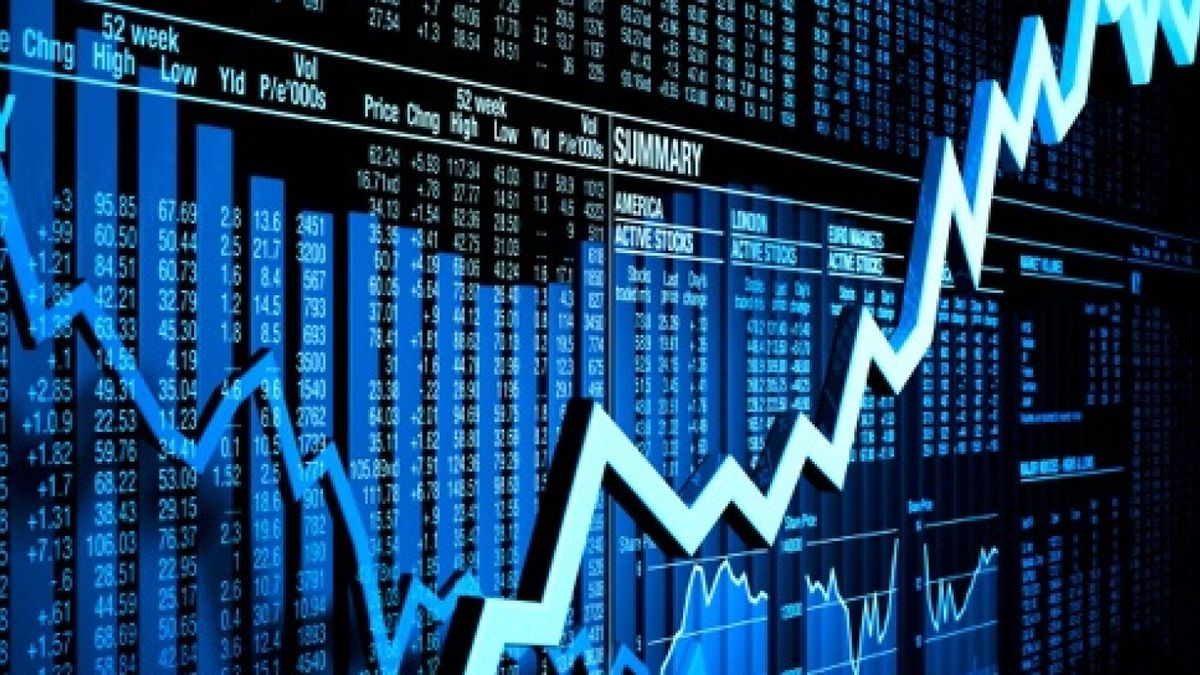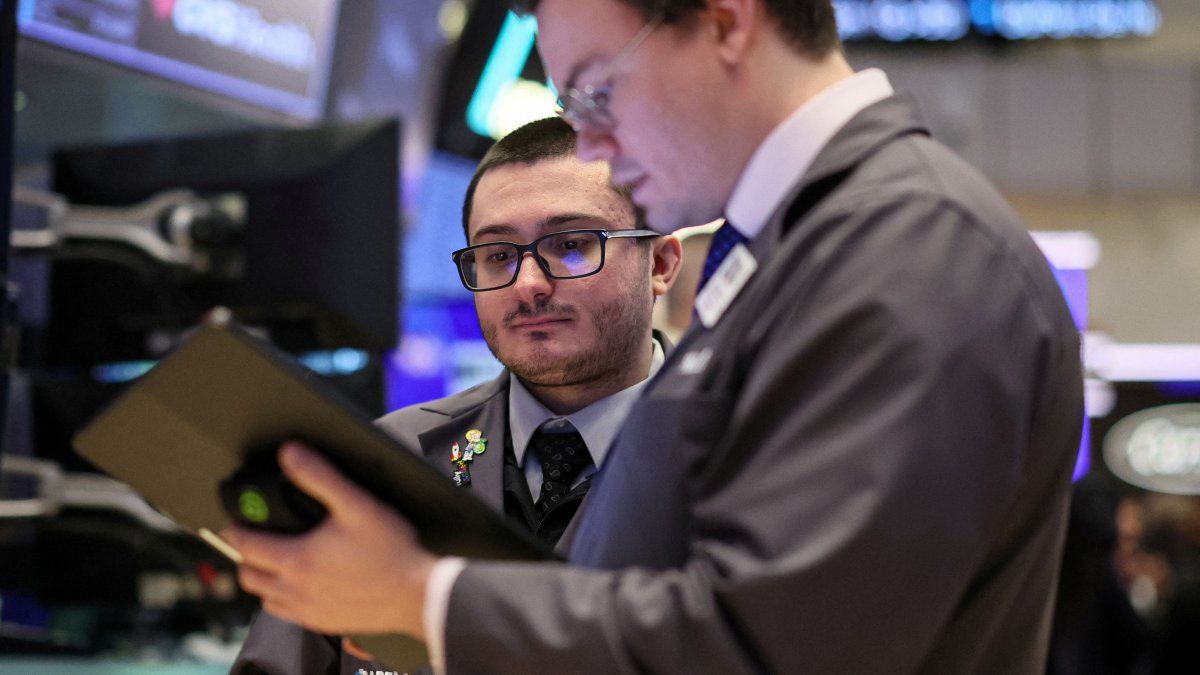At a time when progress is expected in the negotiations with the International Monetary Fund (IMF) to reschedule goals and advance disbursements, the stock index of the Buenos Aires stock market climbed 5.5%, to 380,757.45 points, with the help of a great day in emerging markets. In dollars (CCL)the leading panel reached highs since 2019, touching 770 points (his historical record is 1,800 points and dates from January 2018).
That said, the shares of the financial sector flew and in BYMA the increases of Supervielle (+14%) stood out; Galicia Financial Group (+12.7%); Banco Macro (+12.6%); and Banco BBVA (+12.6%). The volume traded in shares it jumped 55% to $11,402.8 million.
On Wall Street, for its part, the dynamics of bank papers were very similar: Supervielle climbed 14.2%; Banco Macro, 14%; Galicia, 13%; and BBVA, 12.2%.
For some operators, the specific news that triggered a greater appetite in the financial sector, something that had already been manifesting in recent days, was that The Brazilian bank Itaú, the largest in Latin America and the Southern Hemisphere, announced that it is in negotiations to sell its operations in Argentina to Banco Macro. “Itaú clarifies that it is in preliminary negotiations with Banco Macro SA, based in Argentina, in order to divest itself of its operations in that country”expresses the statement signed by Renato Lulia Jacob, responsible for relations with investors and the market.
“Although both banks are negotiating and have not yet reached an agreement, the truth is that the news works as a kind of catalyst to boost the financial sector, which is also super behind,” commented to Ambit Rafael Di Giorno, director of Proficio Investment.
Counted the increases of this daybank shares are still nearly 60% below their 2018 highs.
Another market analyst remarked that “Banks have been recovering ground, and the Merval is exceeding 750 points in dollars due to renewed tactical bets towards the ‘electoral trade’, even within a climate of growing tensions in the coalitions already in the final stretch towards the definition of alliances and the candidacies.
For some analysts, however, the news from Itaú and Banco Macro is not enough to explain the strong rise in bank paper, and they did not rule out that the main “driver” of the day is linked to some positive sign in the negotiations between Argentina and the IMF.
“Banking is a sector that is behind schedule and in the medium term it can work, but there is no positive news in the short term. I don’t know what triggered this, perhaps some outside rumor that the negotiations with the Fund are advancing and, then, some The fund began to pay. The agreement with the IMF is the only thing that is going to give us a hand now, much more than what could be achieved on the recent tour in China. But I didn’t see anything really concrete,” indicated a source of the market.
“We are still waiting for news about the negotiations with the IMF. For the moment, the market discounts that disbursements will be advanced by 2023 (10.8 billion dollars), even if it is a matter of simple make-up for net reserves”said Portfolio Personal Inversiones.
But to analyze the rise on Tuesday, the movement that emerging markets have been showing since the start of the month should not be ignored. “We are seeing a strong rotation towards emerging markets, particularly since the start of the month, the ETS EEM, has already risen 4.5%, driven by the rise in Brazil and China, with their respective ETFs, which showed increases in the that goes of the month of 8%”, Brian Arce, Liebre Capital’s business officer, told this medium.
It is worth noting that in the context of emerging countries, Argentina, having a significant beta, conquer rises above the regional markets. In this context, “we see Argentine shares on the New York Stock Exchange reaching the highest since the pre-PASO 2019 price, some even already exceeding those levels. It seems to me that we are facing a movement that could even be in the medium term , with continuity,” added Arce.
Bonds and country risk
In fixed income, the dollar-denominated bonds were not that far behind bank stocks and posted widespread gains that, in some cases, reached 6.7%, such as the AL41D. The podium with the highest hikes of the day was completed by the AE38D (+6.3%) and the GD38D (+5.9%).
So, The country risk measured by the JP.Morgan bank fell 5.1% (128 units) to 2,388 basis points, the lowest in almost two months.
“There was a party day in the Argentine bond market that traded from low to high, with Globals somewhat more in demand than Bonares, closing at daily highs with average gains of 1.3 dollars along the curve” , described from SBS-
But there was more caution in the bond market in pesoswith the debt swap already confirmed for this Thursday, in which the Government will seek to alleviate maturities in pesos for almost $10 trillion for the months of June, July, August and September, exchanging Bonceres, Leceres, Dollar-linked, Duales and Ledes in exchange for a new Boncer to December 2024 and new Dual bonds maturing in 2024 and 2025. The analyst Salvador Vitelli estimated that “97% of the debt in pesos is indexed. In nominal value they are 107,000 million dollars, and of Of that debt, 76% have their maturities operating between 2023 and 2024 (82,000 million dollars)”.
In this context, the dollar-linked sovereigns closed takers in the short tranche and offered in the long tranche, while the Duals operated inversely: while the short tranche fell 0.2%, the long tranche rose 0.7% in average, concentrating the volume on TDL23 (-0.3%).
Finally, the CER bonds rose 0.4% in the short leg but fell an average 0.3% in the long leg of the curve.
Source: Ambito
I am a 24-year-old writer and journalist who has been working in the news industry for the past two years. I write primarily about market news, so if you’re looking for insights into what’s going on in the stock market or economic indicators, you’ve come to the right place. I also dabble in writing articles on lifestyle trends and pop culture news.




